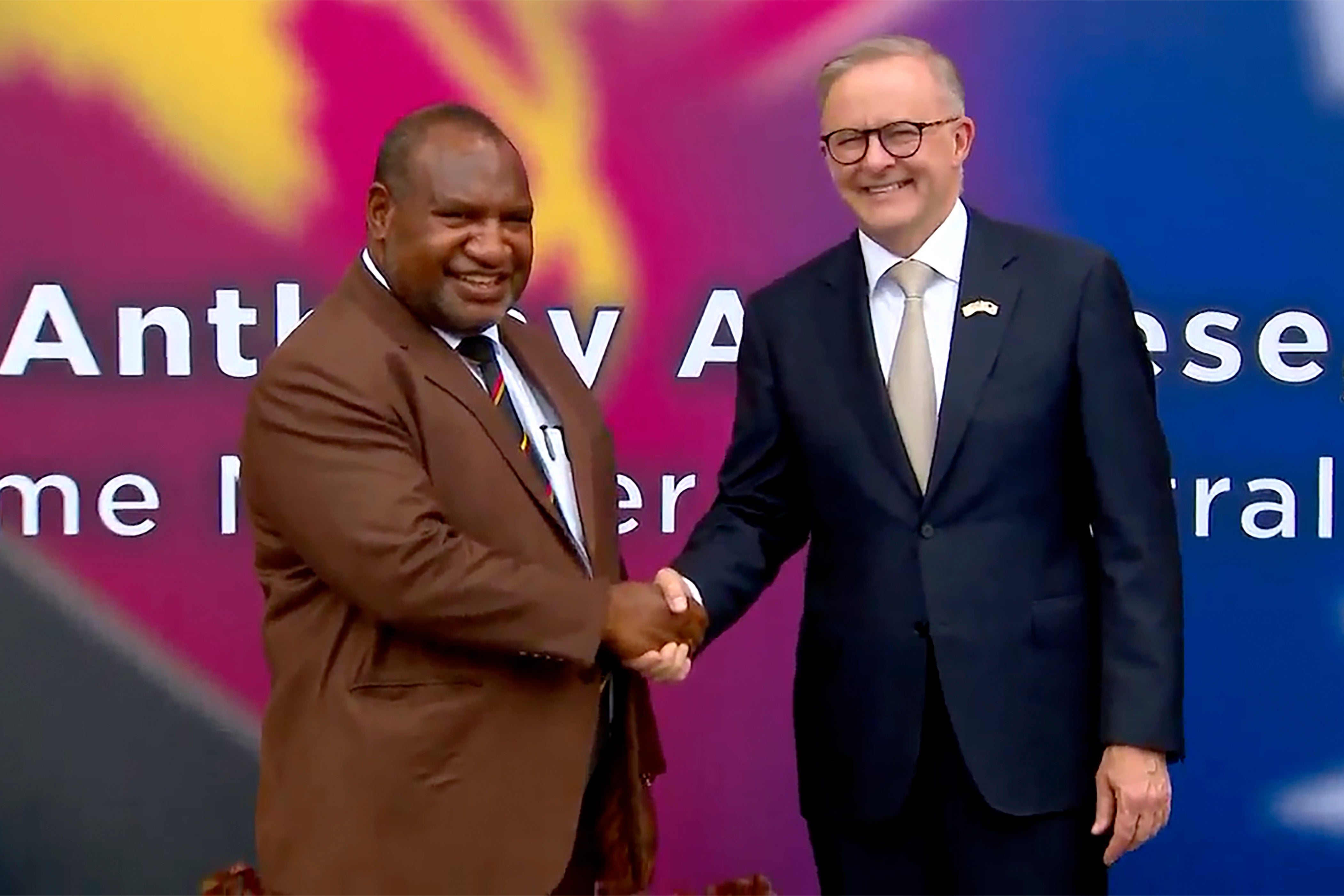Papua New Guinea's prime minister says he will sign a security pact with Australia
Papua New Guinea Prime Minister James Marape says he will sign a bilateral security pact with Australia during a visit this week

Your support helps us to tell the story
From reproductive rights to climate change to Big Tech, The Independent is on the ground when the story is developing. Whether it's investigating the financials of Elon Musk's pro-Trump PAC or producing our latest documentary, 'The A Word', which shines a light on the American women fighting for reproductive rights, we know how important it is to parse out the facts from the messaging.
At such a critical moment in US history, we need reporters on the ground. Your donation allows us to keep sending journalists to speak to both sides of the story.
The Independent is trusted by Americans across the entire political spectrum. And unlike many other quality news outlets, we choose not to lock Americans out of our reporting and analysis with paywalls. We believe quality journalism should be available to everyone, paid for by those who can afford it.
Your support makes all the difference.Papua New Guinea Prime Minister James Marape said Tuesday he will sign a bilateral security pact with Australia during a visit this week.
Marape said the agreement to be signed with his Australian counterpart Anthony Albanese on Thursday will involve Australian police officers working under the command of Papua New Guinea Police Commissioner David Manning.
“The security arrangement is in the best interest of Papua New Guinea and also for Australia and its regional security interests,” Marape said in a statement.
“Cabinet will fully endorse the finer details before Prime Minister Albanese and I sign off,” Marape added.
Albanese’s office did not immediately respond to a request for comment on Tuesday.
A security treaty between Australia and its nearest neighbor, which is strategically crucial in the U.S. partners’ battle against China for regional influence, had been expected to be signed in June.
But after a security agreement that Papua New Guinea signed with the United States sparked student protests in May in the South Pacific island nation’s second-largest city, Lae, Marape announced the Australian pact would be delayed.
Papua New Guinea’s deputy prime minister, John Rosso, told Australian Broadcasting Corp. that the latest agreement would aim to build the capabilities of both the developing nation’s military and police.